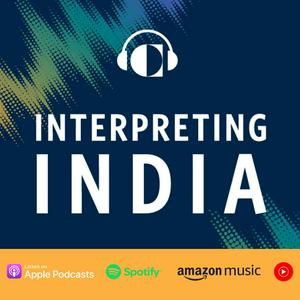Trump 2.0: Navigating the India-U.S. Relationship in a New Era
This episode explores the trajectory of India-U.S. relations as Donald Trump embarks on his second term as president. Arun K. Singh provides a detailed analysis of the highs and lows during Trump’s first administration. He highlights major milestones like the revival of the Quad, the recognition of India as a major defense partner, and the Strategic Trade Authorization-1 that enabled advanced technology access. Simultaneously, he addresses challenges such as tariffs, trade deficits, and immigration policies that strained the partnership.Looking ahead, the discussion focuses on the implications of Trump’s "America First" approach, the complexities of U.S.-China competition, and its ripple effects on India. The episode unpacks the importance of the Quad framework, technology partnerships under the iCET, and defense cooperation as pillars of bilateral engagement. Ambassador Singh also reflects on Trump's political signaling, unpredictability, and how India can leverage its strong ties with the U.S. to address mutual challenges in trade, technology, and the Indo-Pacific region.Episode ContributorsArun K. Singh is a nonresident senior fellow at Carnegie India. Singh has extensive experience across the globe, including as India’s ambassador to the United States, Israel, and France.Vrinda Sahai is a research assistant and program coordinator with the Security Studies Program at Carnegie India. Additional ReadingsBridging East and West: India’s Pursuit of Stability Amid China, Russia, and U.S. Dynamics by Rudra Chaudhuri, Vijay Gokhale, D. B. Venkatesh Varma. The U.S.–India Initiative on Critical and Emerging Technology (iCET) from 2022 to 2025: Assessment, Learnings, and the Way Forward by Rudra Chaudhuri, Konark Bhandari. New Grammar of India-U.S. Relations by Rudra Chaudhuri. India-U.S. Relations Beyond the Modi-Biden Dynamic by Arun K. Singh. #IndiaUSRelations #TrumpSecondTerm #QuadRevival #StrategicPartnership #iCET #IndoPacific #USChinaCompetition #DefenseCooperation
Every two weeks, Interpreting India brings you diverse voices from India and around the world to explore the critical questions shaping the nation's future. We delve into how technology, the economy, and foreign policy intertwine to influence India's relationship with the global stage.As a Carnegie India production, hosted by Carnegie scholars, Interpreting India, a Carnegie India production, provides insightful perspectives and cutting-edge by tackling the defining questions that chart India's course through the next decade.Stay tuned for thought-provoking discussions, expert insights, and a deeper understanding of India's place in the world.Don't forget to subscribe, share, and leave a review to join the conversation and be part of Interpreting India's journey.
